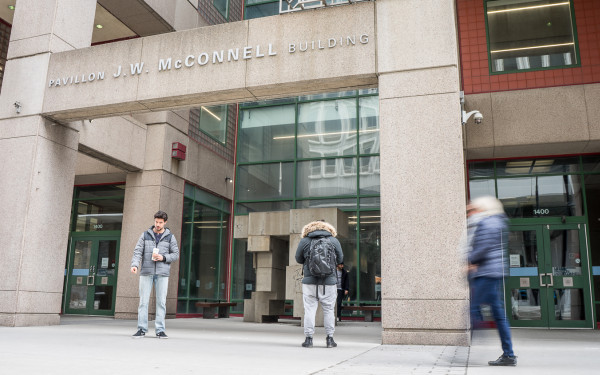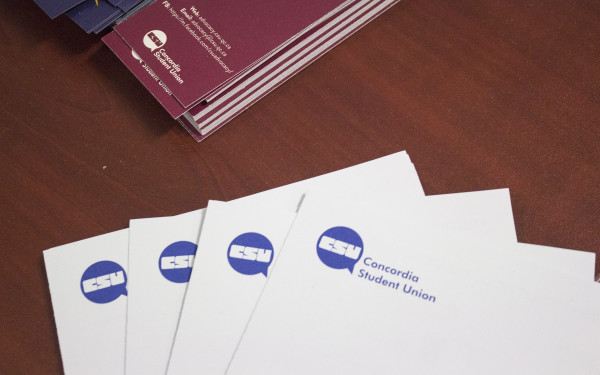16 Schools Launch Campaigns to Leave CFS
Student Federation Faces Lawsuit from Concordia’s Student Unions
Across Canada, 16 schools announced last week they are coordinating to leave the Canadian Federation of Students.
Since 2009, 14 schools have attempted to leave the CFS, a nation-wide umbrella organization of more than 80 university and college student unions, though there have been other coordinated attempts by schools to leave the federation in the past.
Controversies surrounding the federation’s bylaws, financial dealings, and structure continue to plague the organization, according to Nicholas Di Penna, a spokesperson for the group of 16 schools initiating the latest exodus.“Every [annual general meeting] we would find ourselves in the same room together, complaining that [the CFS] was undemocratic,” said Di Penna.
Di Penna says reform from within was not possible because of the top-down structure of the CFS and because of CFS politics.
“It’s all about social capital [at the AGMs],” he said.
According to Di Penna, former director of external affairs of the Dawson Student Union, motions were not always voted on by merit—instead, voting at AGMs was more of a popularity contest.
While many of the 16 schools have yet to reveal themselves for various reasons, Di Penna says representatives from the schools have agreed to hold coordinated referenda and to go public when the time is right for them.
“Some schools are in the middle of orientation, so mobilizing can be somewhat difficult,” said Di Penna. “Some are afraid and want to be on more solid ground, other schools have to contend with huge CFS propaganda and counter mobilization, so they need to take things at a different pace,” he continued.
“What I can say is that all 16 schools will have a referendum to leave the CFS, whether this year or next.”
Concordia and the CFS
Concordia has also attempted to leave the CFS, though as of yet has been unable to do so.
In the summer of 2008, then treasurer of CFS Quebec Andrew Haig raised concerns, citing a $150,000 discrepancy in CFS financial statements. In August of the following year, 14 schools circulated petitions in an attempt to defederate from the organization.
A few months later, at the CFS AGM in November, Motion 6 was passed—a contentious bylaw that outlined additional requirements for any schools wanting to leave the federation.
The requirements included a doubling of the required number of signatures on petitions from 10 per cent of represented students to 20 per cent. Further, no more than two referenda on continued membership in a three-month period would be recognized nation-wide.
The motion also deemed all outstanding fees were to be paid to the CFS no less than six weeks prior to the voting period before the referendum could take place.
In 2009, following the controversy surrounding the federation’s bylaw changes and financial dealings, petitions were circulated by the Concordia Student Union and the Graduation Student Association.
Referenda were held, with both Concordia’s undergraduate and graduate student bodies voting to leave the CFS. Both referenda were not recognized by the CFS, as CFS schools had already held two referenda in the same three-month time period.
Two years later, both the CSU and the GSA filed lawsuits against the CFS asking their referenda results be recognized. Since then, the two associations have come together in a joint suit and, more recently, a 2015 court date was set.
“When trying to get a shady organization like the CFS to recognize the democratic voice of the students to defederate, you are ultimately going against a behemoth of a machine which is not an easy battle,” said 2010-2011 CSU President Heather Lucas, who headed the union during the filing of the lawsuit.
“Unfortunately the only way to get it to be recognized is to pursue legal action.”
Lex Gill, longtime student organizer, voted for legal action as a CSU councillor in 2011, and dealt directly with the lawsuit as CSU president the following academic year.
“After the example of the Maple Spring, I think it’s even more obvious that the big lie they tell—that you need them to be politically effective—isn’t true,” said Gill.
“No one needs the CFS to pull off profound social justice organizing. In fact, the bureaucracy, the entrenched staff control, the petty politics, the corporatism of the CFS all actually get in the way of direct action,” she added.
—With files from Megan Dolski & Andrew Brennan
The headline of an earlier version of this story stated that 16 universities were leaving the CFS. The article has been updated to show that campaigns have been launched advocating leaving the CFS. This article also originally stated Nicholas Di Penna was a member of the Dawson Student Union Executive, he is a former member of the DSU Executive. The Link regrets the errors.


_600_832_s.png)

3_600_375_90_s_c1.jpg)
__600_375_s_c1.png)

